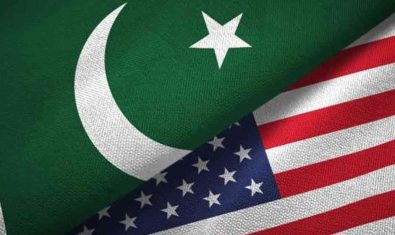With talks of AliBaba entering Pakistan, the hype around e-commerce is reaching fever pitch. According to projections, the industry will cross $1 billion by 2020. However, there are significant challenges that must be overcome if it is to reach that milestone. We’ve documented them quite well on this publication in the past.
Today, however, we’ll be talking about opportunities and one in particular: events.
Black Friday, Cyber Monday and others are familiar terms for most of us now. Celebrated mostly in the West, these shopping festivals offer incredible discounts for shoppers. Last year, Pakistani e-commerce stores also followed suit and spent millions on marketing – and conducting – Black Friday. We also saw the mega Google backed Online Shopping Festival and smaller events throughout the year.
Read more: Black Friday in Pakistan Fails to Deliver on the Hype!
So it’s pretty clear that online retailers are aware of the potential of events and want to take advantage. However, their current strategy is flawed. The problems are two pronged: one is of execution and the other is of localization. Let’s discuss them and then take a look at how to do it right from neighboring India and China.
The Problem with Shopping Events in Pakistan
To start off, discounts on any shopping festival in Pakistan have never rivaled those offered in the West. You might be able to snag a good deal but you’d be in the minority. Naturally, that creates friction between the stores and customers. Black Friday in Pakistan last year was subject to a lot of criticism with people lambasting all stores for unimpressive discounts, limited inventory and sluggish site performance. Clearly, there needs to be more planning and a coherent strategy in place to satisfy a significant number of shoppers on events like these. “Underestimated the response” isn’t an excuse that can be used more than once or twice.
Next comes localization. How many Pakistanis were aware of Black Friday before millions were spent on creating awareness for it? Even those who were familiar with it were bemused at online stores copying the exact lingo since Friday is a holy day for Muslims and calling it ‘Black’, which is a cultural byproduct of the events’ history in the US, carries a negative connotation.
All the awareness created for the event, all the marketing and hype was in essence, reinventing the wheel. Why? Because in absence of the hype for Christmas, which is why Black Friday became popular in the first place in the West, it’s just another day for everyone in Pakistan. Retailers could have picked literally any day of the year and it would have received the same response.
The mistake was ignoring our culture, our heritage and the festivals we do celebrate. E-commerce stores need to evaluate consumer behavior patterns in Pakistan and take advantage of the ebbs and flows and sync them with their own sales timings. It’s not even a hard thing to do since literally every kid above five knows when their family always shops. Eid-ul-Fitr sees Pakistanis spend billions of rupees each year. Ramzan is celebrated with great zeal in this country. Aside from these, seasonal promotions for when schools start and weddings are being arranged, are only some of the possibilities that exist and are ripe for the taking.
Taking a Page Out of China & India’s E-Commerce Playbook
If I am being honest, the failure of e-commerce stores in getting this right is baffling. India and China are the largest e-commerce markets in the world and some of their most successful events aren’t Black Friday or Cyber Monday, they’re based around local and cultural festivals.
In India last year, Flipkart’s Big Billion Sale and Amazon’s Great Indian Festival Sale were organized around the Navratri festival in India. Similarly, Snapdeal promoted one category each day for a week and even named its shopping festival after the Indian festival of Diwali. The logic is that people are naturally going out and spending record amounts of money on these occasions so why not take advantage of the this easily identifiable spending pattern instead of promoting a day that holds no significance to the local populace?
Similarly, in China, Singles’ Day has become famous for breaking e-commerce records each year with tens of billions of dollars in sales. The origins of the its name and the date it occurs, 11/11, are as follows. The number 1 represents a single person and Chinese youth use the 11th of November to celebrate their bachelorhood, sort of like an anti-Valentine’s Day. Chinese retailers took this opportunity and marketed 11/11 as a day when single people could take advantage of massive discounts and treat the most important person: themselves. The result? Singles’ Day is the largest shopping festival in the world and its sales last year surpassed $17 billion in 24 hours.
What E-Commerce Stores Need to Do
The solution is simple enough. We already have a culturally diverse population, festivals that bring us together irrespective of our beliefs and a burgeoning and upwardly mobile middle-class that is poised to ensure e-commerce becomes a billion dollar industry in the coming years. So instead of promoting festivals and sales on days that mean literally nothing to us, use those that do.
Organize sales around Eid-ul-Fitr. Do it on 14th August. Drop discounts on 23rd March. Offer irresistible prices when school season starts. Tempt the bride and groom during events in wedding season in Pakistan. The operating keyword is localization.
I am certain that if e-commerce stores start to take advantage of this opportunity that’s untapped till now, they’ll be well on their way to higher sales, better customer perception and all the good press that goes alongside it all.























they already give discounts on local events. so i dont know whts the point of this article.
Do you think they really give “DISCOUNTS” on Local Events? You call it discount?
By the way, Apart from Discount Awareness is much needed that PP tried to give through this article. Much needed article
Brilliantly written. Foolishness of ‘Black Friday’ was introduced by Daraz and drum rolled/bankrolled by Easypaisa. Those who questioned relation of ‘Black Friday’ with Pakistan were considered ignorant by some so called gurus
Lol!
Lol.
Perhaps if we instead had chosen Ramadan “season of giving” festival across the board where special discounts to poor families could be offered and even sponsored by rich people and companies, that could create a really positive economic as well as social engine of growth. I welcome anyone to take this idea, as long as the financial gains are shared with the poor in truly Islamic spirit.
Brilliant article
Lol
Lol
Fake discounts on all events, fake publicity trick… Fake online stores!!
And above all, fake id.
Aag lag gai shehzady ko ;)
Lol
I don’t care if it’s black friday, diwali or Eid. Discounts should be real. Stop giving cheap freebies to a bunch of people and put some real discounts on real and new products we want to buy. I recently grabbed a Xiaomi Redmi 4A 32GB version from somewhere online which is currently available for 14500 across all platforms but I got it for 12500 thanks to the offer on my bank card. Now that’s the kind of discount I’m talking about. Whereas currently the online stores just offer either old or cheap products on discounted rates which people don’t wanna buy anymore!
agree
Yes that’s the discount. By the way, I bought Redmi 4A+Mi Power Bank in Rs. 11,500 yesterday. :D
They don’t give discounts, just before sale 500 product goes to 900 sold for 700 and after sale back to 500 bingo. I personally saw this behaviour.
Daraz(dot)pk has done exactly the same as you told on this past “Black Friday” sale. On the sale day products were advertised with higher prices cut down to discounts with higher percentage while their original price was the price that was now “Discounted Price”.
discounts on big stores are not real at all and over exaggerated, same stuff is available far far cheaper in the local market.
You are gonna publish my story soon Insha Allah.
There must be a day before Ramzan dedicated for online shopping which would be much convenient for buyers to do shopping before the holy month.
Unfortunately, when these giants come in Pakistan, they operate the way the market is operating. In occassions like Eid, the demand increases massively and players here exploit the consumers. However, if we see globally, there are huge promotions/sale’s on Christmas. This culture needs to be changed and the player that will initiate it will definitely gain the first-mover advantage.
مضإون ضرورت سے زیادہ طویل ہے۔ آدھے الفاظ سے بھی کام چل سکتا تھا۔
yeah Do all that & then some. Qom itna jaldi online shopping pe trillions nahi kharch karne wali. hum wo hain jo already discounted prices pe bhi discount mangte hain Tariq road pe…. :D
“Black Friday in Pakistan last year was subject to a lot of criticism with people lambasting all stores for unimpressive discounts, limited inventory and sluggish site performance.” This article is mainly talking about how to do better and the “right” planning (which is focusing on Pakistani festivals and local consumer behavior patterns). Okay, maybe a good planning can attract people to come to the website to shop at the right time, but how do you explain “unimpressive discounts, limited inventory”? These have little to do with planning. The problem of this issue, actually, is because Pakistan doesn’t have a good products supply system like they are in China and India. I really wish all my Pakistani friends can buy what they want and most importantly, at much lower costs. Apart from that, no matter what good planning e-commerce websites are going to make, they won’t solve the ultimate issue: why they can’t sell cheaper and sell more.